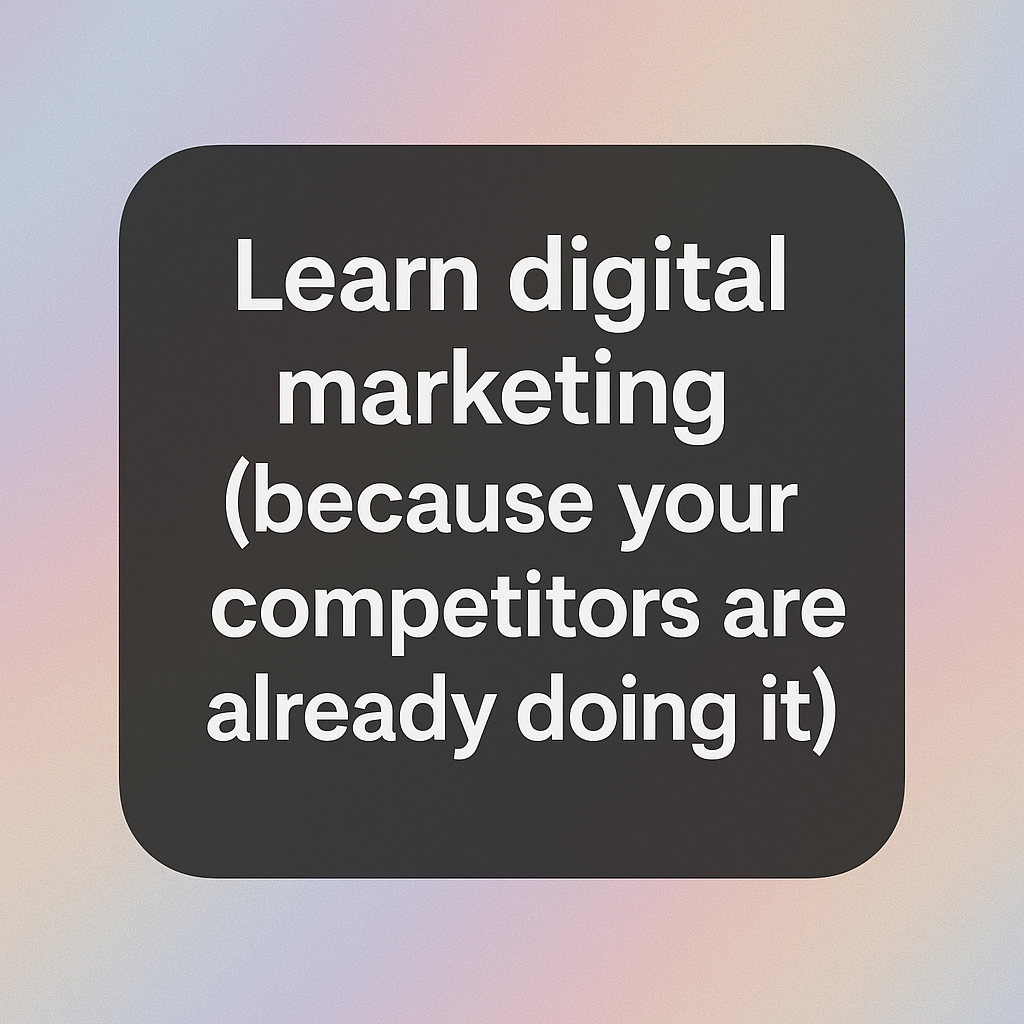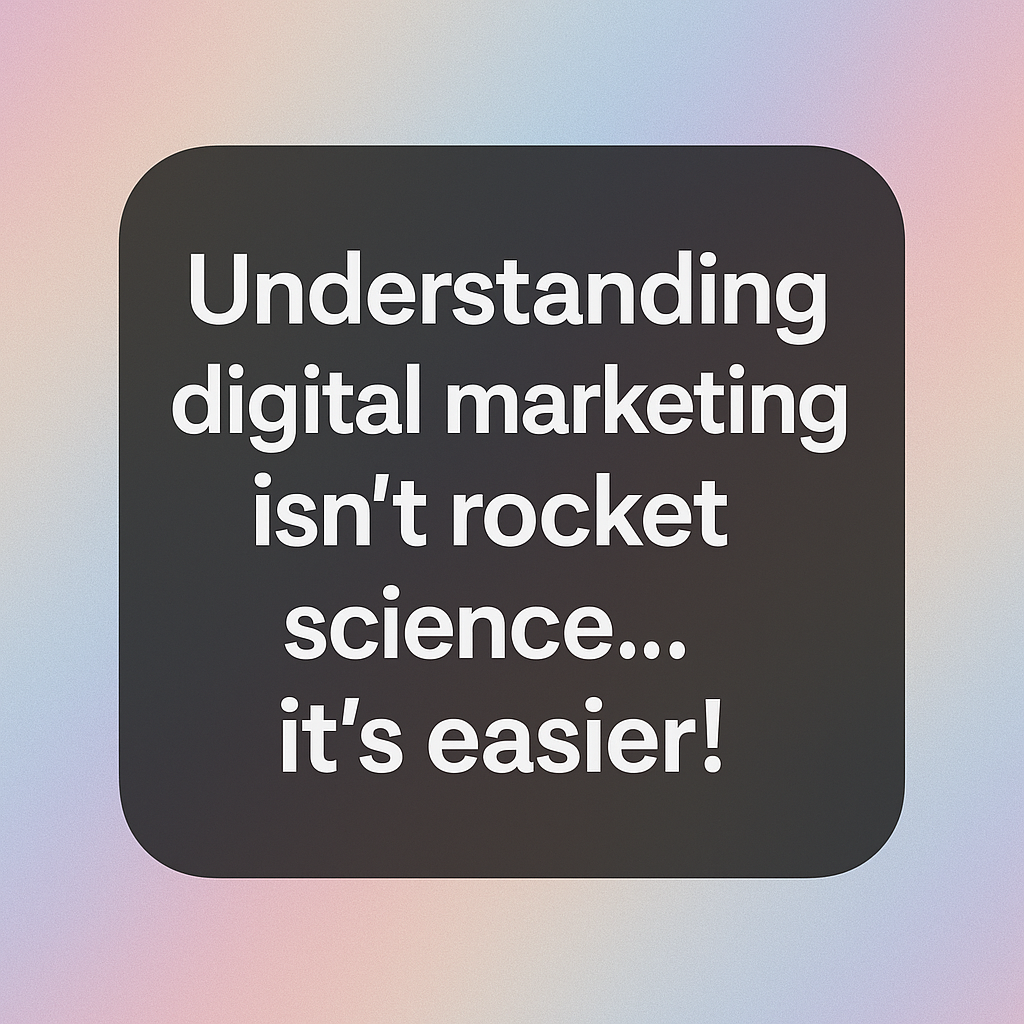
Digital marketing is everywhere you look, shaping what you see online and how you connect with brands. The sheer scale is staggering with global digital ad spending surpassing 600 billion dollars in 2023. Yet most people assume it is just flashy ads popping up on screens. The real story is how digital marketing works quietly behind the scenes, using data and strategy to put the right message in front of the right person at the exact right moment.
Table of Contents
- Defining Digital Marketing: Key Concepts And Terms
- The Importance Of Digital Marketing In Today’s World
- How Digital Marketing Works: The Mechanisms Behind It
- Exploring Different Channels Of Digital Marketing
- Measuring Success: Understanding Analytics And Roi In Digital Marketing
Quick Summary
| Takeaway | Explanation |
|---|---|
| Digital marketing encompasses various online channels. | It includes SEO, content marketing, social media, email marketing, and pay-per-click advertising to reach audiences. |
| A strong digital presence is crucial for competitiveness. | Businesses must engage modern consumers who spend significant time online through effective digital marketing strategies. |
| Data-driven insights enhance marketing effectiveness. | Utilizing analytics allows marketers to track performance, understand customer behavior, and optimize campaigns for better results. |
| Integrated strategies increase brand recognition. | Creating cohesive marketing approaches across multiple channels promotes consistent messaging and enhances audience engagement. |
| Understanding KPIs is essential for success. | Tracking metrics like conversion rates and engagement helps businesses assess marketing effectiveness and make informed decisions. |
Defining Digital Marketing: Key Concepts and Terms
Digital marketing represents a comprehensive approach to promoting products, services, and brands using digital technologies and online platforms. According to research from Investopedia, this strategy encompasses various online channels designed to connect businesses with potential customers through targeted communication methods.
What Exactly is Digital Marketing?
At its core, digital marketing involves leveraging internet-connected devices and digital platforms to reach and engage audiences. Unlike traditional marketing, which relies on print, television, and radio advertisements, digital marketing provides more precise targeting, real-time tracking, and measurable results.
Below is a table comparing the main differences between traditional marketing and digital marketing as discussed in the article.
| Aspect | Traditional Marketing | Digital Marketing |
|---|---|---|
| Channels | Print, TV, Radio | Online platforms (SEO, social media, email, PPC) |
| Targeting | Broad, less precise | Precise audience targeting |
| Tracking & Measurement | Difficult, delayed results | Real-time analytics, measurable results |
| Cost | Often high (mass media ads) | Can be cost-effective, scalable |
| Engagement | One-way communication | Interactive, two-way engagement |
| Reach | Usually local or regional | Potential for global reach |
| Adaptability | Changes are slow, costly | Quick, real-time adjustments possible |
Key components of digital marketing include:
- Search engine optimization (SEO)
- Content marketing
- Social media marketing
- Email marketing
- Pay-per-click advertising
Strategic Approach to Digital Channels
Successful digital marketing requires understanding how different online channels work together to create a cohesive brand narrative. Businesses must develop integrated strategies that speak directly to their target audience’s preferences and behaviors. Read more about digital marketing strategies for service providers to gain deeper insights into effective online promotion techniques.
The digital landscape allows entrepreneurs and solopreneurs to compete effectively without massive advertising budgets. By understanding audience demographics, creating valuable content, and utilizing data-driven insights, professionals can develop powerful marketing approaches that generate meaningful connections and drive business growth.
The Importance of Digital Marketing in Today’s World
In an increasingly connected global environment, digital marketing has transformed from an optional strategy to a critical business necessity. According to research from Forbes, businesses that effectively leverage digital platforms experience significantly higher growth rates compared to traditional marketing approaches.
Connecting with Modern Consumers
Modern consumers spend substantial portions of their day online, making digital channels the most direct pathway to reach potential customers. Smartphones, tablets, and computers have become primary sources of information, entertainment, and purchasing decisions. This shift means businesses must establish a strong digital presence to remain competitive and relevant.
Key reasons digital marketing has become essential include:
- Ability to reach global audiences instantly
- Cost-effective compared to traditional advertising
- Precise audience targeting capabilities
- Real-time performance tracking and analytics
- Increased engagement and interaction opportunities
Democratizing Business Opportunities
Digital marketing has fundamentally changed how small businesses and solopreneurs compete in the marketplace. Explore our guide on scaling service businesses through digital strategies to understand how technology levels the playing field. Entrepreneurs can now access sophisticated marketing tools and strategies that were previously available only to large corporations with extensive marketing budgets.

By understanding and implementing strategic digital marketing approaches, professionals can create meaningful connections, build brand awareness, and drive sustainable business growth across multiple online platforms. The key is to develop authentic, targeted content that resonates with specific audience segments and provides genuine value.
How Digital Marketing Works: The Mechanisms Behind It
Digital marketing operates through a complex ecosystem of interconnected platforms, technologies, and strategic approaches designed to reach and engage target audiences. According to research from Harvard Business Review, successful digital marketing strategies require understanding user behavior, technological infrastructure, and data-driven decision making.
Core Technological Infrastructure
At the foundation of digital marketing lie sophisticated tracking and analytics systems that enable precise audience targeting and performance measurement. These technologies collect and analyze user data across multiple touchpoints, allowing marketers to create personalized experiences that resonate with specific demographic segments.
Key technological components include:
- Web analytics platforms
- Customer relationship management (CRM) systems
- Artificial intelligence and machine learning algorithms
- Cross-platform tracking mechanisms
- Data visualization and reporting tools
Strategic Engagement Mechanisms
Digital marketing functions through carefully orchestrated strategies that transform passive online spaces into interactive engagement platforms. Learn more about optimizing marketing funnels for service providers to understand how professionals can create meaningful digital connections. Successful approaches involve creating valuable content, understanding audience pain points, and developing targeted communication strategies that guide potential customers through awareness, consideration, and conversion stages.
By leveraging data insights, advanced technologies, and strategic communication techniques, digital marketing transforms traditional advertising models into dynamic, responsive systems that adapt in real-time to changing consumer behaviors and preferences.
Exploring Different Channels of Digital Marketing
According to research from Gartner, digital marketing channels represent diverse platforms that enable businesses to connect with potential customers through targeted communication strategies. Each channel offers unique opportunities for engagement and requires specialized approaches to maximize effectiveness.
Primary Digital Marketing Channels
Digital marketing encompasses a wide range of online platforms that allow businesses to reach and interact with their target audiences. These channels provide multiple touchpoints for communication, brand building, and customer acquisition. Understanding the strengths and nuances of each channel is crucial for developing a comprehensive marketing strategy.
This table summarizes the main digital marketing channels described in the article along with their primary functions.
| Channel | Primary Function |
|---|---|
| Search Engine Marketing | Increases visibility on search engines |
| Social Media Marketing | Builds community and brand awareness |
| Email Marketing | Delivers personalized communication and promotions |
| Content Marketing | Educates, informs, and engages audiences |
| Video Marketing | Provides visual engagement and storytelling |
| Podcast Marketing | Shares expertise and builds authority |
| Affiliate Marketing | Expands reach through partnerships |
Key digital marketing channels include:

- Search engine marketing (SEM)
- Social media marketing
- Email marketing
- Content marketing
- Video marketing
- Podcast marketing
- Affiliate marketing
Strategic Channel Integration
Successful digital marketing requires more than just selecting multiple channels it demands creating a cohesive strategy that allows seamless interaction across platforms. Explore our guide on ad campaign management for service providers to understand how professionals can develop integrated marketing approaches.
Professionals must recognize that modern consumers interact with brands across multiple digital touchpoints. An integrated approach ensures consistent messaging, builds brand recognition, and creates multiple opportunities for audience engagement. By understanding the unique characteristics of each digital marketing channel, businesses can craft targeted strategies that resonate with specific audience segments and drive meaningful interactions.
Measuring Success: Understanding Analytics and ROI in Digital Marketing
According to research from Google Analytics, measuring digital marketing performance requires a comprehensive approach that goes beyond simple numerical tracking. Successful analytics involve interpreting complex data points to understand customer behavior and marketing effectiveness.
Key Performance Indicators (KPIs)
Digital marketing analytics provide detailed insights into campaign performance through various measurable metrics. These indicators help businesses understand the impact of their marketing strategies and make data-driven decisions. Professionals must track multiple dimensions to gain a holistic view of their digital marketing efforts.
Critical KPIs for digital marketing include:
- Conversion rates
- Customer acquisition cost
- Return on ad spend (ROAS)
- Website traffic volume
- Engagement rates
- Lead generation metrics
- Customer lifetime value
Interpreting Marketing Performance
Understanding return on investment (ROI) requires more than just tracking numbers it demands a strategic interpretation of data. Explore our guide on tracking performance for service providers to understand how professionals can transform raw data into actionable insights.
Successful digital marketers recognize that analytics are not just about measuring past performance but predicting future opportunities. By developing sophisticated tracking mechanisms and understanding the story behind the numbers, businesses can continuously refine their marketing strategies, optimize resource allocation, and create more targeted approaches that deliver meaningful results.
Unlock Simpler, Smarter Digital Marketing for Service Providers
Feeling overwhelmed by the complexities of digital marketing? If managing channels, tracking analytics, and optimizing your business seems like a maze, you are not alone. Many solopreneurs and freelancers struggle with fragmented tools and time-consuming processes. This article explored the importance of integrated strategies, seamless analytics, and the challenge of building a strong digital presence without technical skills. Now, imagine streamlining every aspect of your marketing and operations in just one place.

Stop wasting hours piecing together separate apps for emails, client management, bookings, and digital ads. Experience how Fluum empowers you with an all-in-one, AI-powered platform designed for service-based solopreneurs. From automated sales funnels to unified analytics and effortless integrations with top tools, everything you need is at your fingertips. Take the next step toward visibility, growth, and simplicity—explore Fluum’s pricing options now, and get the complete toolkit that helps you turn digital marketing basics into real business success.
Frequently Asked Questions
What is digital marketing?
Digital marketing is a comprehensive approach to promoting products, services, and brands using digital technologies and online platforms. It involves leveraging internet-connected devices to reach audiences through various online channels like SEO, content marketing, social media, email, and pay-per-click advertising.
Why is digital marketing important for businesses today?
Digital marketing is crucial as it enables businesses to reach a global audience instantly, engage with modern consumers effectively, and provide measurable results. It has become essential for building brand awareness and driving business growth, particularly in an increasingly connected world.
What are the key components of a successful digital marketing strategy?
A successful digital marketing strategy should include search engine optimization (SEO), content marketing, social media marketing, email marketing, and pay-per-click advertising. Additionally, integrating these components into a cohesive strategy is important for maximizing effectiveness.
How can I measure the success of my digital marketing efforts?
Success in digital marketing can be measured using key performance indicators (KPIs) such as conversion rates, customer acquisition cost, return on ad spend (ROAS), website traffic volume, and engagement rates. Analyzing these metrics helps businesses make data-driven decisions and optimize their marketing strategies.
Recommended
- Fluum | What is Digital Ad Tools for Scaling a Nutrition Business
- Fluum | What is Ad Campaign Management for Personal Trainers
- Fluum | What is Ad Management for Promoting Therapy Services
- Fluum | What is Email Marketing for Fitness Professionals
- Fluum | How to Start Freelancing with No Experience: Step-by-Step Guide
- What is Digital Marketing? Understanding Its Importance



